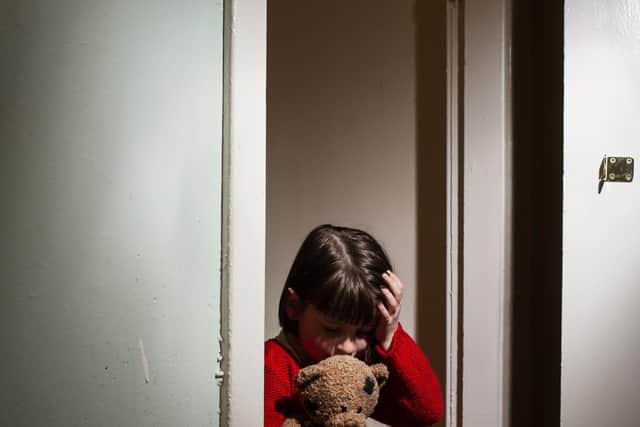Warning over domestic abuse blind spot in child contact hearings in Scotland
Researchers discovered family lawyers were heavily reliant on their clients telling them about ongoing or past domestic abuse as there is no formal mechanism for them to be informed about criminal proceedings.
The research team based at the universities of Glasgow and Edinburgh Napier also found a worrying lack of awareness among those lawyers who were surveyed on how domestic abuse affects children.
Advertisement
Hide AdAdvertisement
Hide AdChild contact orders are considered as part of civil court proceedings where a sheriff decides whether, how much and what form of contact a non-residential parent should have with their child during the week and on holidays.
The report has outlined a dozen recommendations calling for improved information sharing and compulsory training of legal professionals in the civil court system to help safeguard children. They include compulsory enhanced training for all sheriffs, judges and legal practitioners working in the civil system on domestic abuse, coercive control and the impact on children’s lives.
The recommendations also call for improved flow of information around domestic abuse to all key professionals in the system and that ongoing criminal proceedings should be flagged on family court databases.
Richard Whitecross, professor of law at Edinburgh Napier University and a co-author of the report, said: “While we have made important steps forward in terms of how we respond to domestic abuse, particularly in policy and criminal proceedings, little attention has been given to how it impacts on civil law proceedings like child contact orders.
“These hearings are important for the overall wellbeing and safety of the child and so it is concerning to find that those involved in the decision making around child contact don’t always have a full picture of what’s been going on in these family’s lives.


He added: “Finding out a parent has been convicted of domestic abuse by chance or from a client, rather than through official channels, means there’s a risk of partial or inaccurate information being conveyed which can fundamentally change the outcome of a case and compromise the child’s safety.”
As part of the study, researchers conducted a survey and carried out interviews with lawyers to determine how their understanding of domestic abuse informs their handling of child contact cases.
Michele Burman, a professor of criminology at the University of Glasgow, who was part of the research team, explained: “During our interviews we saw limited awareness from lawyers of domestic abuse and its effect on children, with most equating it with physical violence, rather than all the other forms it can take.
Advertisement
Hide AdAdvertisement
Hide Ad“This lack of understanding around harm may mean the child at the centre of these contact orders is placed at risk by subsequent ill-informed decision making.”
A spokeswoman for the Scottish Government, which commissioned the report, said: “Any kind of abuse is unacceptable and the safety and wellbeing of women and children must be protected. The government will carefully consider the recommendations in the report.”